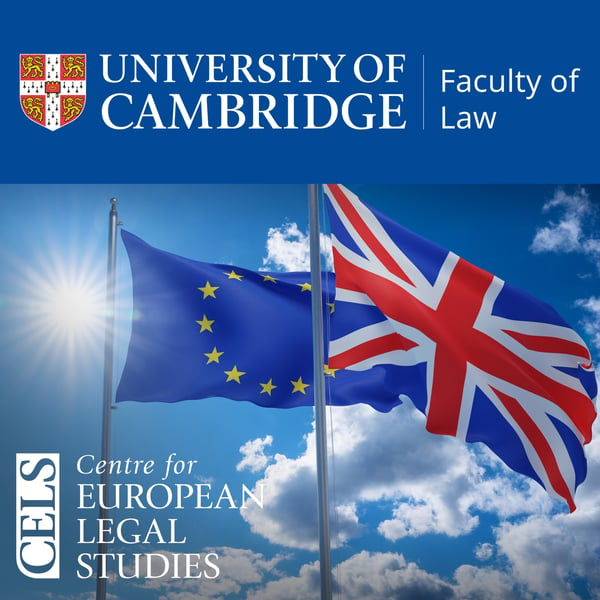'The Familiapress Dilemma: The Horizontal Application, Horizontal Direct Effect and Horizontal Enforcement of the Free Movement Provisions': CELS Seminar
Cambridge Centre for European Legal Studies (CELS) Podcast
Faculty of Law, University of Cambridge
0 • 0 Ratings
🗓️ 11 November 2024
⏱️ 31 minutes
🧾️ Download transcript
Summary
Transcript
Click on a timestamp to play from that location
| 0:00.0 | Well, good afternoon everyone. |
| 0:06.0 | My name is Catherine Barnard and I'm delighted to chair the first of the cells lunchtime seminars. |
| 0:14.0 | I'd like to welcome everyone in the room but also those of you who are online. Today is, of course, a momentous day for the world, |
| 0:24.6 | and I imagine quite a lot of people were up large parts of the night |
| 0:28.6 | looking at what happened. |
| 0:30.6 | It's a momentous day, of course, for the EU and the UK |
| 0:35.6 | and the implications of what happened last night will be felt for a number of months to come. |
| 0:40.8 | But I think one thing we can say is that it's really important that we carry on doing what we do best. |
| 0:47.6 | And one of the things that we do best is inviting fantastic speakers. |
| 0:52.1 | And I have a particular interest in the speaker because Berent was one of my fine students, |
| 0:57.0 | and it's a good example of where a student far exceeds the master. |
| 1:03.0 | And this is what you will see with Berent's presentation today. |
| 1:07.0 | So he's going to talk to us about the Vex question of horizontal application and horizontal direct effect. |
| 1:15.5 | And Berent, the floor is yours. |
| 1:17.2 | He's going to talk for about 35 minutes. |
| 1:19.5 | And then I will have time for questions. |
| 1:23.5 | Anyone who's listening online, I'll monitor the questions online. |
| 1:31.5 | So please put your questions in and I will read them out. |
| 1:38.0 | And we will finish by about 10, 5 to 2 so people can get on to their next class. |
| 1:39.2 | Flores yours. |
| 2:03.0 | Catherine, thank you very much. I'm going to start perhaps with a few words by way of introduction to this topic, because on a day like today in an EU law research seminar, perhaps you would expect to talk about the role of the EU in the world, security, AI, digital technology, and yet I'm here today, and I'm going to talk to you about the horizontal direct effect of the free movement provisions, which is really a very old topic that has been |
| 2:07.7 | discussed and written about for decades. So why am I going to talk to you about this very |
... |
Please login to see the full transcript.
Disclaimer: The podcast and artwork embedded on this page are from Faculty of Law, University of Cambridge, and are the property of its owner and not affiliated with or endorsed by Tapesearch.
Generated transcripts are the property of Faculty of Law, University of Cambridge and are distributed freely under the Fair Use doctrine. Transcripts generated by Tapesearch are not guaranteed to be accurate.
Copyright © Tapesearch 2025.

